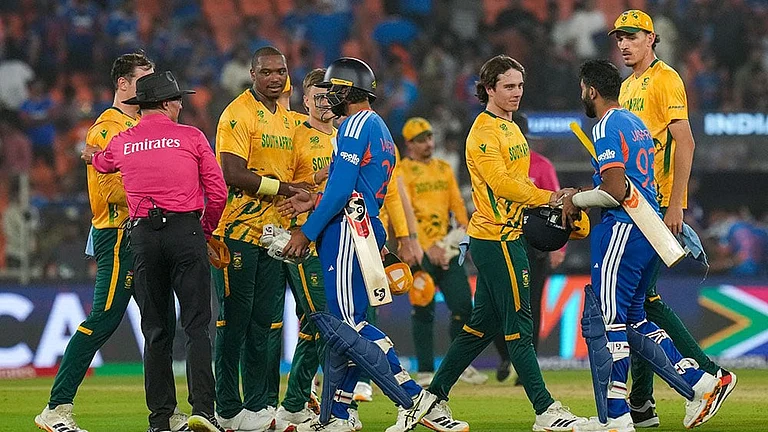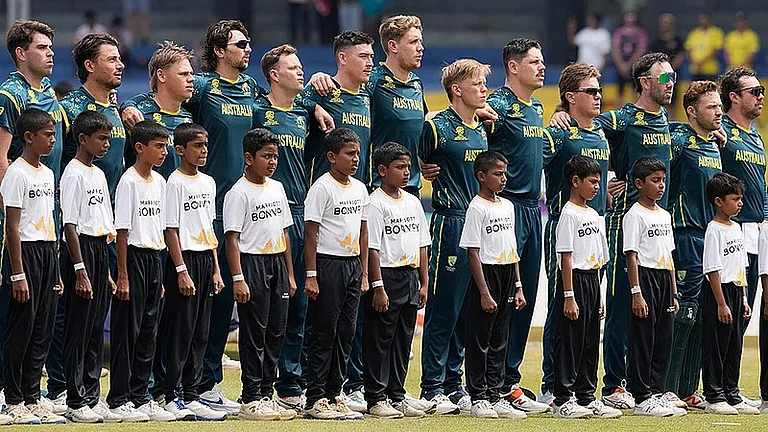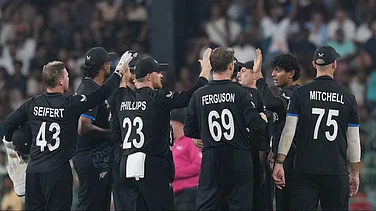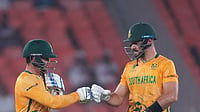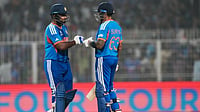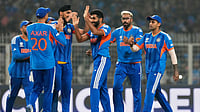
Summary of this article
First held in 1973, the ICC Women’s World Cup began two years before the men’s event and has grown into the pinnacle of women’s ODI cricket
Australia lead with seven titles, followed by England with four and New Zealand with one, the only three champions so far
India and South Africa, meeting in the 2025 final, are both chasing their maiden World Cup crown
India take on South Africa in the final of the ICC Women's Cricket World Cup 2025 on November 2. After Sunday's Navi Mumbai showdown, new world champions in women's ODI cricket will be crowned.
The eight-team tournament, being co-hosted by India and Sri Lanka, with the latter roped in to ensure Pakistan's participation, has already been hailed as a cultural phenomenon.
Across 30 matches played so far, including 28 group-stage clashes and two high-voltage semi-finals both featuring former champions, the 13th edition of the tournament has delivered unprecedented levels of engagement for women's cricket.
As anticipation builds for the India vs South Africa final, let's take a look at the tournament history:
Birth Of A World Cup
The first edition of the Women's Cricket World Cup was held in England, from June 20 to July 28, 1973, remarkably, two years before the men's tournament. That same year, the Women's Cricket Association of India (WCAI) was formed, and the first Women's Inter-State Nationals was also held.
Seven teams participated in a round-robin format, where the side with the highest points was crowned the inaugural champions. England topped the table with 20 points, followed by Australia (17), while New Zealand, International XI, Trinidad and Tobago, Jamaica, and Young England rounded out the standings. The International XI returned for the 1982 edition as well.
Held under the aegis of the then International Women's Cricket Council, the matches were 60-over games, reflecting the prevailing format of that era.
Early Challenges
One of the main reasons for limited participation in the early years of the tournament was a lack of funding. Also, they were largely invitational, and teams often declined to participate -- most notably in the second edition, hosted by India five years after the inaugural event.
Held from January 1 to 13, that tournament featured just four teams -- the lowest in World Cup history. Using the same round-robin format as 1973, Australia emerged unbeaten with six points, followed by England (4), New Zealand (2), and India (0).
Despite these early hurdles, the tournament gradually evolved. The 1982 edition in New Zealand introduced a final to decide the winners for the first time, where Australia beat England to claim the title.
A turning point came in 2005 with the merger of the International Women's Cricket Council and the International Cricket Council, which helped stabilise the event and establish a consistent scheduling window.
The Aussie Dominance
Australia are the most decorated team in ICC Women's Cricket World Cup history, winning seven titles: 1978 (on points), 1982, 1988, 1997, 2005, 2013, and 2022. They were unbeaten in all but one of their seven final appearances, with the sole loss coming against New Zealand in the 2000 title clash.
These wins have been shaped by the brilliance of legendary players such as Belinda Clark, Karen Rolton, Lyn Fullston, Lisa Sthalekar, Ellyse Perry, Alyssa Healy, etc. In the process, they have also elevated the global standard of women's cricket.
Remarkably, Australia twice recorded 15-match winning streaks at the World Cup -- the longest in the tournament's history -- from 1993 to 2000 and again from 2017 to 2025, both ultimately halted by India in semi-final showdowns.
English Legacy, And Kiwi Triumph
Besides Australia, England and New Zealand are the only other teams to have won the Women's ODI World Cup. England, with wins in 1973, 1993, 2009, and 2017 editions, remain the second most successful side in tournament history.
In 2000, playing in a third successive final, hosts New Zealand defeated Australia by four runs to end the Australia-England duopoly and claim their first world title. They returned to the final in 2009 but settled for the runners-up tag after losing to England.
India And Other Finalists
India may still be chasing their first title, but their rise is hard to ignore. Heading into Sunday's final, Harmanpreet Kaur & Co. are widely billed as favourites against South Africa, who are eyeing a first ICC Women's World Cup crown.
Notably, India have reached each of their finals by beating the reigning champions in the semi-finals: New Zealand in 2005, and Australia in both 2017 and 2025 editions.
South Africa, meanwhile, beat England in this iteration and became the sixth team to reach a Women's World Cup final. Back in 2013, the West Indies topped the Super Six stage ahead of Australia but lost the final, by 114 runs, in a clash between the two top teams.



